Millennial Feminists Speak Out Now: 7 Provocative Books
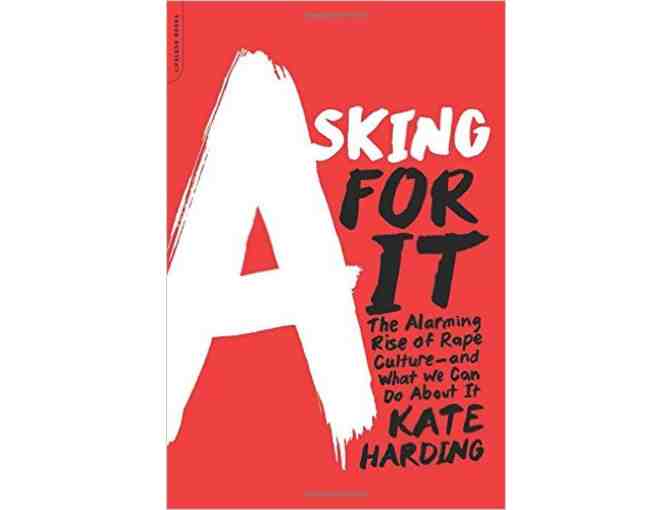
Item Number: 204
Time Left: CLOSED
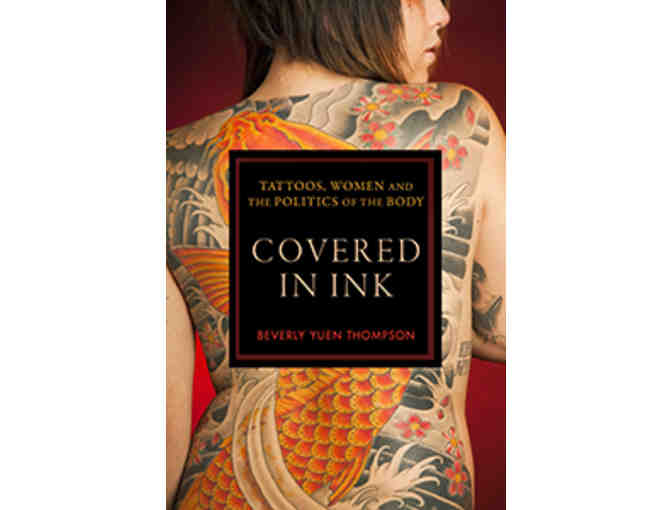
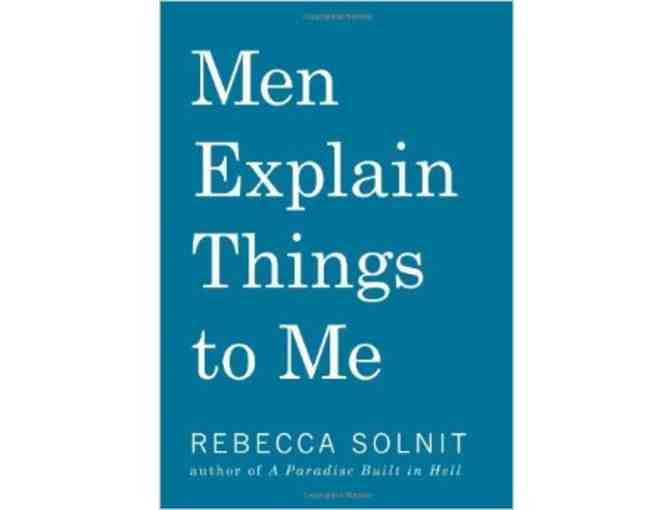
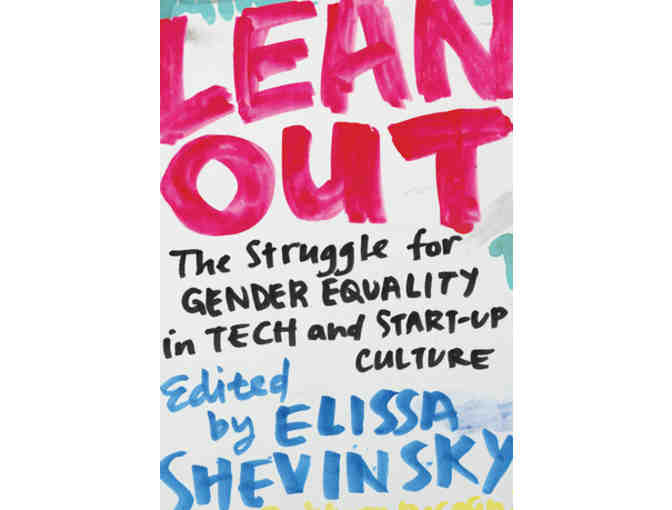
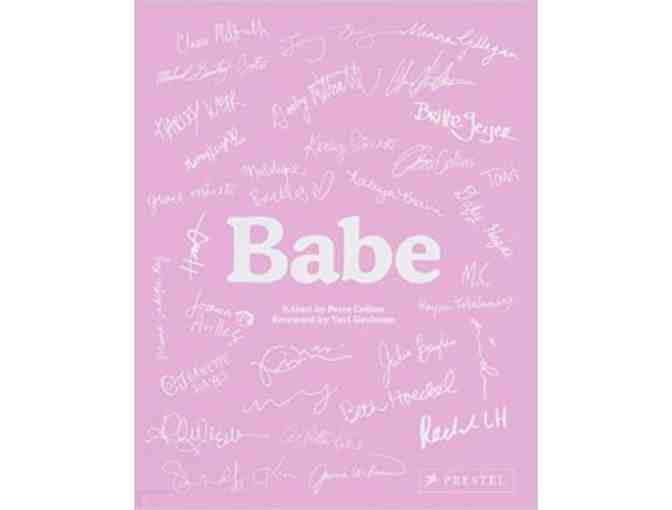
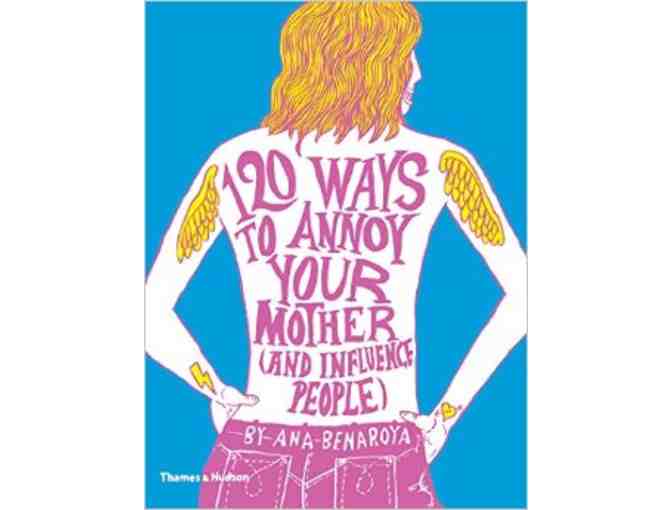

Description
Asking For It: The Alarming Rise of Rape Culture—and What We Can Do About It, buy , by Kate Harding.
Every seven minutes, someone in America commits a rape. And whether that's a football star, beloved celebrity, elected official, member of the clergy, or just an average Joe (or Joanna), there's probably a community eager to make excuses for that person.
In Asking for It, Kate Harding combines in-depth research with an in-your-face voice to make the case that twenty-first-century America supports rapists more effectively than it supports victims. Drawing on real-world examples of what feminists call "rape culture"—from politicos' revealing gaffes to institutional failures in higher education and the military—Harding offers ideas and suggestions for how we, as a society, can take sexual violence much more seriously without compromising the rights of the accused.
Covered in Ink: Tattoos, Women, and the Politics of the Body, by Beverly Yuen Thompson.
A small dolphin on the ankle, a black line on the lower back, a flower on the hip, or a child’s name on the shoulder blade—among the women who make up the twenty percent of all adults in the USA who have tattoos, these are by far the most popular choices. Tattoos like these are cute, small, and can be easily hidden, and they fit right in with society’s preconceived notions about what is ‘gender appropriate’ for women. But what about women who are heavily tattooed? Or women who visibly wear imagery, like skulls, that can be perceived as masculine or ugly when inked on their skin?
Drawing on autoethnography, and extensive interviews with heavily tattooed women,
Covered in Ink provides insight into the increasingly visible subculture of women with tattoos. Author Beverly Thompson visits tattoos parlors, talking to female tattoo artists and the women they ink, and she attends tattoo conventions and Miss Tattoo pageants where heavily tattooed women congregate to share their mutual love for the art form. Along the way, she brings to life women’s love of ink, their very personal choices of tattoo art, and the meaning tattooing has come to carry in their lives, as well as their struggles with gender norms, employment discrimination, and family rejection. Thompson finds that, despite the stigma and social opposition heavily tattooed women face, many feel empowered by their tattoos and strongly believe they are creating a space for self-expression that also presents a positive body image. A riveting and unique study,
Covered in Ink provides important insight into the often unseen world of women and tattooing.
Men Explain Things to Me, by Rebecca Solnit.
In her comic, scathing essay “Men Explain Things to Me,” Rebecca Solnit takes on what often goes wrong in conversations between men and women. She writes about men who wrongly assume they know things and wrongly assume women don’t, about why this arises, and how this aspect of the gender wars works, airing some of her own hilariously awful encounters.
She ends on a serious note— because the ultimate problem is the silencing of women who have something to say, including those saying things like, “He’s trying to kill me!”
The updated edition of this national bestseller features two new essays, including Solnit's recent essay on the remarkable feminist conversation that arose in the wake of the 2014 Isla Vista killings.
Lean Out: The Struggle for Gender Equality in Tech and Start-Up Culture, edited by Elissa Shevinsky.
Why aren’t the great, qualified women already in tech being hired or promoted?
Should people who don’t fit in seek to join an institution that is actively hostile to them?
Does the tech industry deserve women leaders?
The split between the stated ideals of the corporate elite and the reality of working life for women in the tech industry—whether in large public tech companies or VC-backed start-ups, in anonymous gaming forums, or in Silicon Valley or Alley—seems designed to crush women’s spirits. Corporate manifestos by women who already fit in (or who are able to convincingly fake it) aren’t helping. There is a high cost for the generation of young women and transgender people currently navigating the harsh realities of the tech industry, who gave themselves to their careers only to be ignored, harassed and disrespected.
Not everyone can be a CEO; not everyone is able to embrace a workplace culture that diminishes the contributions of women and ignores real complaints. The very culture of high tech, where foosball tables and endless supplies of beer are de facto perks, but maternity leave and breast-feeding stations are controversial, is designed to appeal to young men. Lean Out collects 25 stories from the modern tech industry, from people who fought GamerGate and from women and transgender artists who have made their own games, from women who have started their own companies and who have worked for some of the most successful corporations in America, from LGBTQ women, from women of color, from transgender people and people who do not ascribe to a gender. All are fed up with the glacial pace of cultural change in America’s tech industry.
Included are essays by anna anthropy, Leigh Alexander, Sunny Allen, Lauren Bacon, Katherine Cross, Dom DeGuzman, FAKEGRIMLOCK, Krys Freeman, Gesche Haas, Ash Huang, Erica Joy, Jenni Lee, Katy Levinson, Melanie Moore, Leanne Pittsford, Brook Shelley, Elissa Shevinsky, Erica Swallow, and Squinky. Edited and selected by entrepreneur and tech veteran Elissa Shevinsky, Lean Out sees a possible way forward that uses tech and creative disengagement to jettison 20th century corporate culture: “I’ve figured out a way to create safe space for myself in tech,” writes Shevinsky. “I’ve left Silicon Valley, and now work remotely from home. I adore everyone on my team, because I hired them myself.”
Babe, edited by Petra Collins.
Curated by one of today's most sought-after photographers, this collection of work by young female artists captures the voices and visions that are shaping a generation of women. 21-year-old Canadian photographer Petra Collins is leading the way in a contemporary girl power revolution that proves feminism and sexuality aren't mutually exclusive. Babe includes work by Collins as well as over 30 artists who have been part of her online collective The Ardorous. Though their work is aesthetically varied, it all represents a current zeitgeist characterized by explorations of female identity, scrutinization of the role of the Internet and social media, and a penchant for pastel colors. The artists in the book, such as Arvida Bystrom, Sandy Kim, Harley Weir, Jeanette Hayes, and Kristie Muller, hail from a variety of places, including New York, London, Moscow, Stockholm, Los Angeles, Berlin, and Toronto. Together they reflect an all-accepting, affirming, distinctly female point of view that teens and young women everywhere can respond to. With a Foreword by Tavi Gevinson, writer, actress, fashion blogger, and creator of the online magazine Rookie, this is an inspiring collection for a new generation of creative, forward thinking women.
120 Ways to Annoy Your Mother (And Influence People), by Ana Benaroya.
120 entertaining, ironic, and not-so-quietly rebellious tips for young girls.
Even before they reach their teens, young girls are bombarded with imagery and expectations of what a teenage girl is: how they should dress, what they should be interested in, and how they should conduct themselves. But what is there for preteen girls who don’t want to conform? This is the book for them.
Ana Benaroya has brought together 120 tips that provide an ironic, witty, and gently subversive twist on all the “guides to life” for would-be prom queens and cheerleaders. The book includes the things thatreally matter for an independent teenage girl, including “How Not to Make Eye Contact with Your Mother” and “How to Turn Your Life into a Soap Opera,” alongside humorous pointers for cultural and social advancement, such as “How to Appreciate Jazz Music,” and dreamy, surreal ideas, such as “How to Fly” and “How to Breathe Fireballs.” Benaroya wonderfully captures what it feels like to be a young girl who needs an outlet to rebel, think for herself, or just annoy her mother. Part journal, part sketchbook and cheeky guide, this book, vibrantly printed in bright colors, includes space for readers to sketch and scrawl their thoughts on each tip and to chart their successes and failures.
Science...For Her!, by Megan Amram.
Megan Amram, one of Forbes’ “30 Under 30 in Hollywood & Entertainment,” Rolling Stone’s “25 Funniest People on Twitter,” and a writer for NBC’s hit show Parks and Recreation, delivers a politically, scientifically, and anatomically incorrect “textbook” that will have women screaming with laughter, and men dying to know what the noise is about.
In the vein of faux expert books by John Hodgman and Amy Sedaris, Science…for Her! is ostensibly a book of science written by a denizen of women’s magazines. Comedy writer and Twitter sensation Megan Amram showcases her fiendish wit with a pitch-perfect attack on everything from those insanely perky tips for self-improvement to our bizarre shopaholic dating culture to the socially mandated pursuit of mind-blowing sex to the cringe-worthy secret codes of food and body issues.
Part hilarious farce, part biting gender commentary, Amram blends Cosmo and science to highlight absurdities with a machine-gun of laugh-inducing lines that leave nothing and no one unscathed. Subjects include: this Spring’s ten most glamorous ways to die; tips for hosting your own big bang; what religion is right for your body type; and the most pressing issue facing women today: kale!!!
Be prepared to laugh about anything in this outrageous satirical gem.
Special Instructions
A $7.50 charge will be added for shipping and handling to any USA address. Inquire about shipping outside the USA.